A Call for Humanity and Stronger Global Governance
It is with dismay that we see how much the COVID-19 has affected people and nations. This pandemic is one of the major humanitarian crises in modern history and has spread to conflict-affected and fragile countries. This pandemic increases the vulnerability of people already experiencing humanitarian crises, poverty, inequalities and economic distress. Humanitarian needs will become more acute and will be more challenging to staff and to fund, as countries around the world focus on meeting their own COVID-19-related needs.
In times when all governments and institutions should be ensuring full, safe, immediate and unrestricted access for humanitarian and medical personnel, including their equipment and supplies to the most affected areas, it is distressful to see some governments using economic war tactics to control supply chains for goods that suddenly appear strategic, undermining a fair humanitarian response, especially in countries with less economic resources.
The implications for countries with weak health systems may be especially harsh and may disproportionally affect populations that are highly exposed or confined, including migrants, displaced persons, asylum-seekers, refugees, and those living in informal settlements. Communities that rely heavily on humanitarian assistance, or are subject to economic sanctions and import restrictions, may face acute threats.
In a moment when even countries with strong and solid health systems and economies find it difficult to respond to the challenges of COVID-19, and when international collaboration and solidarity is paramount, we still see some few governments being inflexible in relaxing or banning economic embargos and sanctions on countries and populations that have been struggling to survive even in more normal times.
This pandemic affects men and women differently, and people may also face added dangers due to racial discrimination, age and gender. We must acknowledge that women are on the frontlines and female nurses make up most of the medical personnel in most countries, but they are also more susceptible to sexual and gender-based violence in time of quarantine and lockdown.
Amid such scenarios, it is impressive to experience the solidarity that has been demonstrated by people, communities, governments and institutions around the world. This solidary wave creates an opportunity to build a new spirit for humanity, but it will depend mainly on the attitudes of the people, including political leaders and institutions.
We welcome the United Nations Secretary-General’s call to the international community to move to a health strategy “that ensures, in full transparency, a coordinated global response, including helping countries that are less prepared to tackle the crisis”. Likewise, his call for an immediate global ceasefire, to “silence the guns” and “focus together on the true fight of our lives”.
We also welcome the call from the UN High Commissioner for Human Rights, Michelle Bachelet and others who have called for both international and unilateral sanctions to be relaxed to permit countries access to necessary goods and equipment in the context of the pandemic: “Humanitarian exemptions to sanctions measures should be given broad and practical effect, with prompt, flexible authorization for essential medical equipment and supplies”.
As many researchers, peoples and institutions are saying, the world will not be the same after the COVID-19 pandemic. Therefore, we firmly believe that it is time to use this opportunity to rethink our understanding of humanity and how global governance works.
We must learn from our history. The United Nations was created 75 years ago as a response to the atrocities of a major global crisis, where many principles and instruments were created to ensure peace and security, human rights and sustainable development. Now, it is time to assess how the international community is holding these principles and instruments and amend them to the new reality in front of us.
Therefore, the ACT Alliance calls peoples, governments, multilateral institutions and civil society organizations, including faith communities, to take decisive and forward-looking actions regarding the COVID-19 pandemic. Particularly, we call on:
1. Governments to make all necessary efforts and use all necessary resources to combat COVID-19 as a global pandemic and to ensure that cross-border medical and other essential goods supply chains can function effectively and efficiently for the common good.
2. UN, humanitarian organizations and governments to continue ensuring adequate humanitarian and development assistance, funding and social protection to people affected by conflicts, wars, displacement and poverty.
3. International community and governments to suspend or exonerate the external debt payments of affected poor countries in order to allow them to allocate resources to respond to the pandemic.
4. Governments to immediately stop embargos and economic sanctions on countries affected by the pandemic, especially Cuba, Iran, North Korea and Venezuela, as a humanitarian gesture superseding a political stance.
5. All people, governments and organizations to acknowledge the impact of the pandemic on women and stress the importance of women’s participation in the development of the responses to the pandemic.
6. Governments to divert attention, funding and resources from war machinery to focus on the epidemic and thus support peace processes.
7. Political leaders to make all efforts to make the role of the UN stronger in order to ensure principled global governance, including the revision of the UN Charter to ensure fairness and equality for the entirety of humanity, for one humanity.
Rudelmar Bueno de Faria
ACT Alliance General Secretary
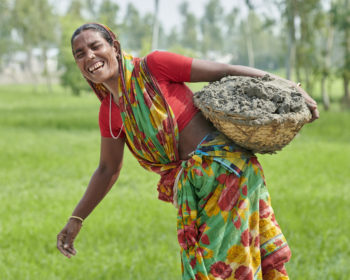
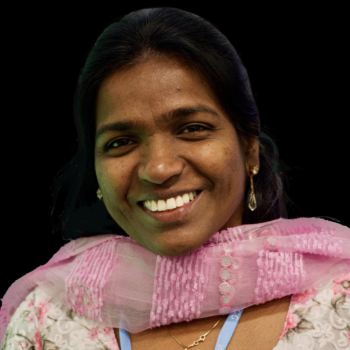
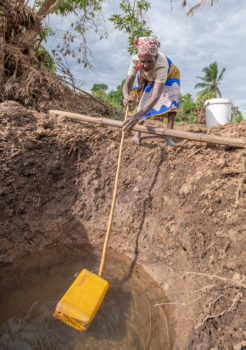
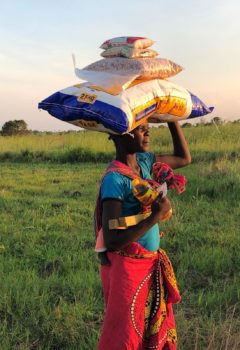
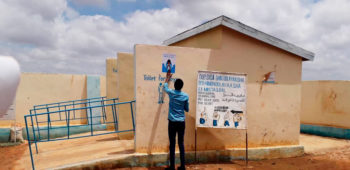 Vulnerable communities across the world are bracing for the impact of a potential spread of the coronavirus.
Vulnerable communities across the world are bracing for the impact of a potential spread of the coronavirus.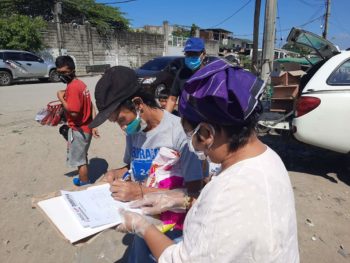
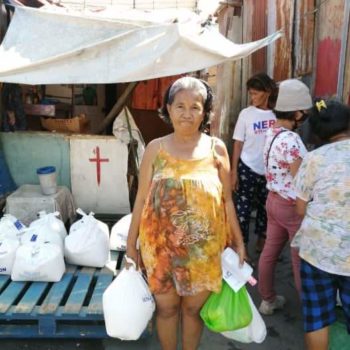 NCCP’s food kits consisted of 10 kgs of rice, dried fish, mung beans, salt, sugar, canned foods, and cooking oil. The food kits are anticipated to support a family of five for 7-10 days. The hygiene kits consisted of soap, detergent, rubbing alcohol, disinfectant cleaning solution and face masks.
NCCP’s food kits consisted of 10 kgs of rice, dried fish, mung beans, salt, sugar, canned foods, and cooking oil. The food kits are anticipated to support a family of five for 7-10 days. The hygiene kits consisted of soap, detergent, rubbing alcohol, disinfectant cleaning solution and face masks.